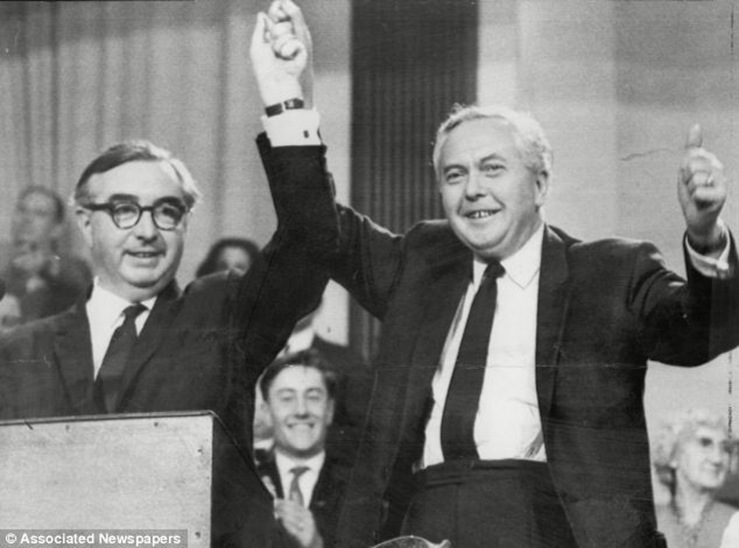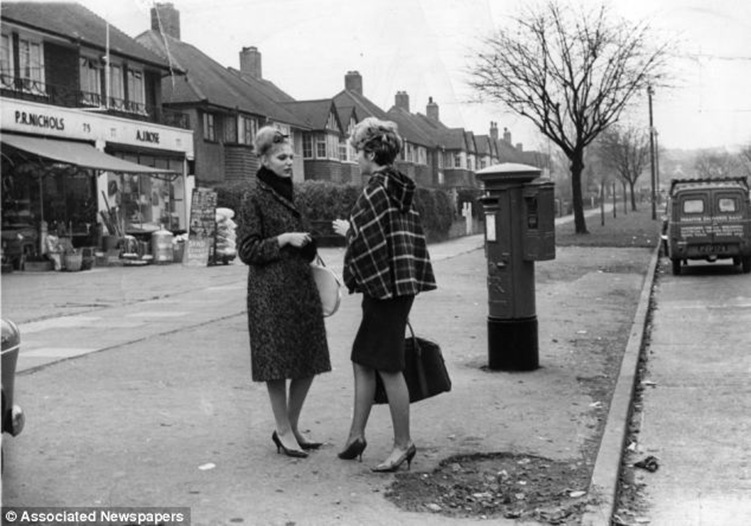Daily Mail
January 2, 2014

Just imagine that when you woke up this morning, you found yourself catapulted back in time exactly 50 years, to Britain in the first days of 1964.
At first, you might well be surprised how different things were half a century ago.
This was a world in which shops closed on Sundays, pubs shut at 10.30 pm and homosexuality was a criminal offence.
Britain in January 1964 had just two television channels, with BBC 2 arriving only in April that year.
In the industrial North, thousands of families still made do with an outside toilet.
Computers were virtually unknown, and even the currency was very different, with heavy two-shilling and half-crown coins instead of today’s homogenised (and soon-to-be plastic) bank notes.
Yet there are also striking similarities. This was a country falling in love with consumerism, liberalism and the cult of youth. It is often claimed that the Sixties really began in 1963.
Indeed, the poet Philip Larkin famously claimed that the sexual revolution began in 1963 ‘between the end of the Chatterley ban / and the Beatles’ first LP’.
But I think the real dividing line fell during the following year, and that 1964 was the watershed that marked the birth of a new Britain.
This was the year that saw The Beatles, the Kinks and the Rolling Stones break through to become international icons. It saw the birth of Terence Conran’s household store Habitat, the boutique Biba and Radio Caroline, as well as the advent of a reforming new Labour government.

Perhaps, above all, it saw the rise of a new kind of permissive liberalism, which was meant to set us free from the disciplines of the past but had consequences that its architects had never imagined — and that we are still grappling with today.
Looking back, the extraordinary thing about life in Britain in 1964 was the sharpness of the juxtaposition between old and new.
It is bizarre to think that when the Rolling Stones were celebrating their first Number One hit single, the man in Number 10 was Sir Alec Douglas-Home, a tweedy Conservative aristocrat who had been born in 1903 and had given up his peerage to become prime minister.
Although Sir Alec was tirelessly ridiculed by the newly-fashionable Oxbridge satirists — launching a trend for irreverent mockery that continues to this day — he was a decent, serious and dutiful man.
Even so, he was a ridiculous choice to lead Britain into the mid-1960s. Not only was Home a member of the House of Lords, but the Tory MPs had not even been allowed to choose their own leader.
Instead, Home had been parachuted into the premiership by a ‘magic circle’ of Old Etonians.
That made him an easy target for Labour’s Harold Wilson, who in October 1964 ended 13 years of Conservative rule and entered Downing Street as the youngest prime minister of the century.
The first modern prime minister to make a virtue of his modest, grammar-school background, Wilson ostentatiously presented himself as the champion of the common man, even boasting: ‘If I had the choice between smoked salmon and tinned salmon, I’d have it tinned. With vinegar.’
In reality, Harold Wilson was a master of spin. Like Tony Blair, who borrowed heavily from his predecessor’s repertoire, he wanted to be seen as youthful, classless and, above all, modern.
He promised to forge a new Britain in the ‘white heat’ of the scientific revolution, sweeping away tradition and turning us into a technological superpower.
Alas, Wilson’s ambitions turned to dust. By the time he finally left office 12 years later, Britain’s economic star had fallen lower than ever. But, at the time, his infatuation with modernity struck a chord.
But in 1964, by which time the British Empire had almost totally disintegrated, 20 years of affluence had given ordinary families their first cars, TV sets and washing machines, while free healthcare and state education had created a generation of youngsters who were literally bigger, more adventurous and more assertive than ever.
To the leading lights of this new generation — a metropolitan elite who would go on to dominate the arts, universities and the BBC in the decades to come — the past was an unwelcome legacy.
Across the country, planners were misguidedly tearing down Victorian town centres to make way for dual carriageways, tower blocks and multi-storey car parks. Not even the Luftwaffe had wreaked such havoc on Britain’s architectural heritage.
Perhaps the worst crime was the transformation of Birmingham, which in 1964 resembled a gigantic building site. Already work was underway to destroy the Victorian core of England’s second city, turning it into something more like a particularly unsightly East German power station.
